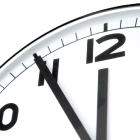[Download a free issue of Iron Man Magazine for iPhone and iPad]
 Recently, I read an in-depth article in the New York Times about a group of people who live long and well on a very small Greek Island. The author pointed out that there is no “silver bullet” but rather a shotgun blast of interconnected factors that, taken together, are as close as we have come to understanding how to live well and long.
Recently, I read an in-depth article in the New York Times about a group of people who live long and well on a very small Greek Island. The author pointed out that there is no “silver bullet” but rather a shotgun blast of interconnected factors that, taken together, are as close as we have come to understanding how to live well and long.
I stress both because “dynamic longevity” is what living is all about—an agile mind in an agile body, to paraphrase Plato. I see those interconnected factors as spokes in a wheel. I won’t be moving to a tiny Greek island anytime soon, but I can analyze how those people live and try to adapt what I can and apply it to my own spokes in the wheel of dynamic longevity.
The first question mark—and one with no answer—is heredity. We are who we are, no alteration possible there, but it can be an early-warning system when you’re creating your personal plan. Know thyself. Examine your heredity—family tree, medical history—and do what you can to head off the negatives.
Beyond the blueprint and its history, everything is a lifestyle decision. Some things may be worth it to you; some won’t. Everyone has his or her own cost-to-benefits ratio.
One of the keystones of life on the island is shared community—the feeling of belonging and having value as a person. As one individual put it, “a reason to get up in the morning.” No one on the island ever retires in the sense that we do.
Beyond wanting to be bigger and stronger, the biggest reason that I was attracted to bodybuilding was the sense of community and of being special that it brought me. It was a feeling of being in control of several intangible spokes on my wheel. As for the Greeks on the island, there are no gyms, but they traverse very hilly terrain on foot every day to work in the gardens and vineyards and do their errands. Their work is the physical center, as the workout is for us.
They are not governed by clocks; they get up when they are rested, they nap every day, and they enjoy their friendships in their homes and bars. They eat and drink very simply, foods they grow or raise themselves—no pesticides or other chemicals. Their diet consists of goats’ milk and its yogurt, fish and limited meat with olive oil and wine daily. The olive oil is mostly used as a condiment, not heated. They use no sugar but do eat local honey every day and a coarse whole-grain bread. Another spoke: Simple, high-quality food always eaten in a social situation is a nourishing ritual.
Of course, most of us are governed by clocks, but we can all make better food choices and make mealtime not a race to the finish but an experience. The people on that island have taken the time to smell the roses and are completely open to the wonders of living.
My comments have just touched the surface of this fascinating article. If you’d like to read it, here is the link: www.nytimes.com/2012/10/28/magazine/the-island-where-people-forget-to-die.html?_r=0
[Download a free issue of Iron Man Magazine for iPhone and iPad]




















You must be logged in to post a comment Login